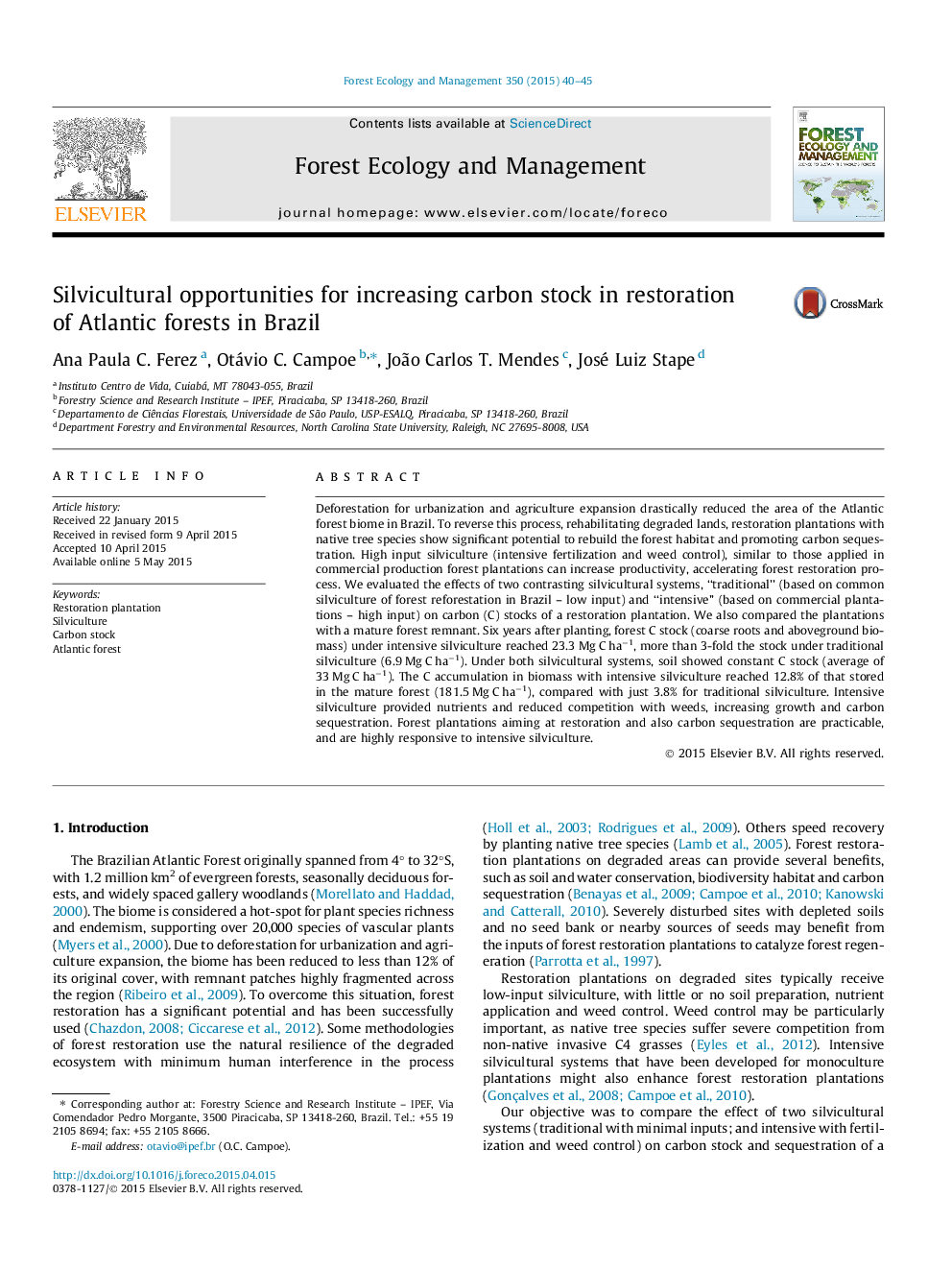| Article ID | Journal | Published Year | Pages | File Type |
|---|---|---|---|---|
| 86171 | Forest Ecology and Management | 2015 | 6 Pages |
•We studied carbon stock of a 6-year restoration plantation under different silvicultural management.•Weed control and extra fertilization increased carbon sequestration.•Carbon stock in mixed forest restoration plantations is highly responsive to intensive silviculture.
Deforestation for urbanization and agriculture expansion drastically reduced the area of the Atlantic forest biome in Brazil. To reverse this process, rehabilitating degraded lands, restoration plantations with native tree species show significant potential to rebuild the forest habitat and promoting carbon sequestration. High input silviculture (intensive fertilization and weed control), similar to those applied in commercial production forest plantations can increase productivity, accelerating forest restoration process. We evaluated the effects of two contrasting silvicultural systems, “traditional” (based on common silviculture of forest reforestation in Brazil – low input) and “intensive” (based on commercial plantations – high input) on carbon (C) stocks of a restoration plantation. We also compared the plantations with a mature forest remnant. Six years after planting, forest C stock (coarse roots and aboveground biomass) under intensive silviculture reached 23.3 Mg C ha−1, more than 3-fold the stock under traditional silviculture (6.9 Mg C ha−1). Under both silvicultural systems, soil showed constant C stock (average of 33 Mg C ha−1). The C accumulation in biomass with intensive silviculture reached 12.8% of that stored in the mature forest (181.5 Mg C ha−1), compared with just 3.8% for traditional silviculture. Intensive silviculture provided nutrients and reduced competition with weeds, increasing growth and carbon sequestration. Forest plantations aiming at restoration and also carbon sequestration are practicable, and are highly responsive to intensive silviculture.
